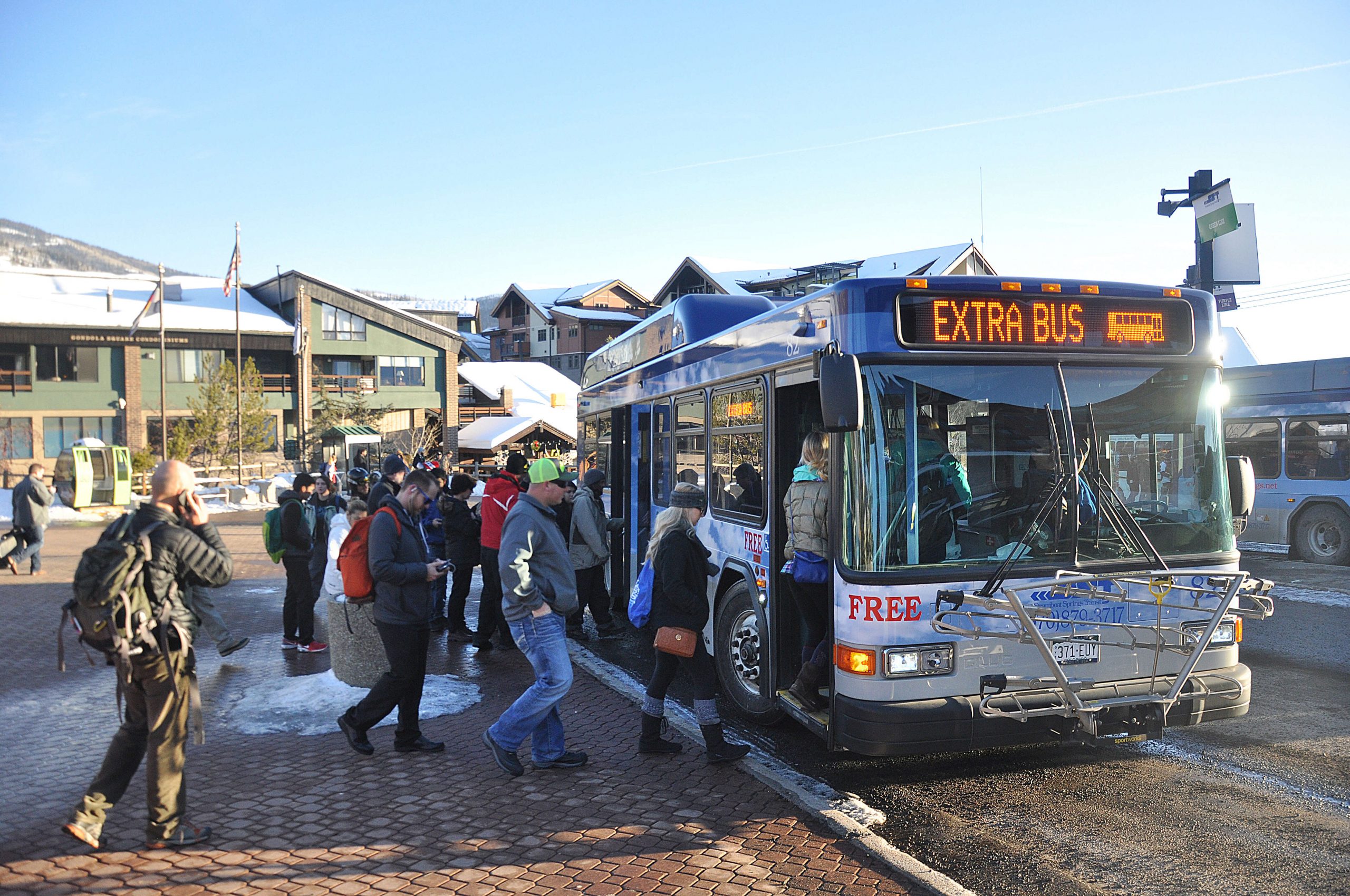Steamboat Resort proposes paid parking as a solution to help fund city transit

STEAMBOAT SPRINGS — Months after Steamboat Ski & Resort Corp. and Steamboat Springs City Council began negotiating on how to fund the city’s free transit system, Ski Corp. presented a series of options to council Tuesday night.
Ski Corp. President and COO Rob Perlman proposed a hybrid plan with the city implementing paid parking in the downtown area and Ski Corp. matching the revenue gained. Perlman also offered for the ski area to pay for a study examining how paid parking could be implemented, which he estimated would cost between $30,000 and $50,000. Ski Corp. would also continue paying the “voluntary sales tax,” a tax equal to the city sales tax, which customers visiting businesses on resort property that are located outside city limits pay with their purchases.
“Most of the other ski communities in Colorado use paid parking to help fund great public transportation,” Perlman told council.
Perlman also said he would sign a formal contract agreeing to help fund the Steamboat Springs Transit Blue Line for the 2021-22 season, which Ski Corp. verbally agreed to do in the 2020-21 season, then backed down from when resort revenue dropped due to COVID-19.
However, the Blue Line funding and agreement to match paid parking revenue came with a condition that council agree to drop discussions about a lift tax for the 2021-22 season.
“We all did try to play well in the sandbox, and we did as much negotiating as we could given the time frame,” said council member Heather Sloop, who helped negotiate with Ski Corp.
Because the 2020-21 season was especially bad for Ski Corp., Perlman presented the paid parking match as a short-term solution but said he would like to have a mid-range discussion about partnering with the city to purchase electric buses and a long-range discussion about workforce housing and a potential lift tax on an “innovative transportation solution,” such as a gondola running from the resort to the downtown area.
“We put forth some options, so we could put something on the table as quickly as we did, but we’re not going anywhere,” Perlman said.
While all council members said they believed the negotiations were productive considering the two groups had only been discussing the matter for about a month, some council members said they were frustrated about repeating the same discussion they have been having for years — how to get Ski Corp. to contribute more money.
“I get that this takes time, but we’ve been talking about having the resort contribute more for more than five years now,” said council member Lisel Petis. “I don’t feel this is enough overall, but maybe it’s enough for this year, and we continue the discussion next year.”
“We really need to see some tangible processes moving forward and not just keep having these same discussions every month,” said Council President Jason Lacy. “I know this has been a difficult year for many of our businesses, including Ski Corp., and that’s what leads me to think a lift tax question this year is probably the wrong timing.”
Other council members expressed concern over implementing paid parking because the city’s community survey results revealed residents strongly disliked the idea of paid parking and ranked it at the bottom of the list when asked about potential revenue increases.
“At this point, I think paid parking goes over like a lead balloon,” said council member Kathi Meyer. “We could lose our jobs if we move forward with this, based on what the survey says.”
Sarah Jones, Ski Corp. director of sustainability and community engagement, said Ski Corp. pushed for matching paid parking rather than a lift tax because paid parking would encourage people to ride public transit or find other means of transportation.
“If people are required to pay when they park downtown, it incentivizes public transportation and walking and biking,” Jones said in an interview Wednesday.
Additionally, Jones said paid parking is a more equitable approach between the city and Ski Corp., where the burden of a lift tax would be placed entirely on those using the resort.
“When we talk about paid parking, that’s where the equitable approach comes in,” Jones said. “Paid parking is long-term sustainable funding for the city.”
To reach Alison Berg, call 970-871-4229 or email aberg@SteamboatPilot.com.

Support Local Journalism

Support Local Journalism
Readers around Steamboat and Routt County make the Steamboat Pilot & Today’s work possible. Your financial contribution supports our efforts to deliver quality, locally relevant journalism.
Now more than ever, your support is critical to help us keep our community informed about the evolving coronavirus pandemic and the impact it is having locally. Every contribution, however large or small, will make a difference.
Each donation will be used exclusively for the development and creation of increased news coverage.
Start a dialogue, stay on topic and be civil.
If you don't follow the rules, your comment may be deleted.
User Legend: ![]() Moderator
Moderator ![]() Trusted User
Trusted User





